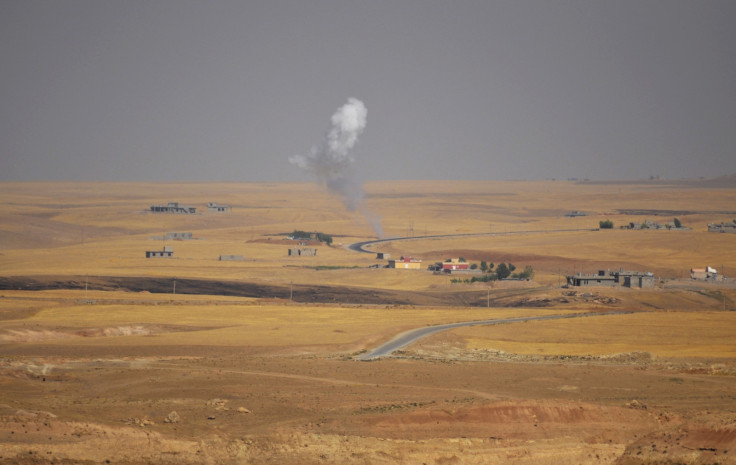Iraq Crisis: US Launches Second Wave of Airstrikes on IS Militants

The US has launched a second round of airstrikes upon Islamic State (IS) targets in northern Iraq, the Pentagon has confirmed.
Rear Admiral John Kirby said US drones and unmanned fighter jets attacked targets near the city of Irbil.
U.S. F/A-18 jet fighters first used 500-pound laser guided bombs to hit a mobile artillery unit in the capital of the Kurdish region.
A second strike took place when the fighter jets struck a stationary convoy of seven vehicles and a mortar position.
"On both runs, each aircraft dropped one laser guided bomb making a total of eight bombs dropped on target neutralising the mortar and convoy," said Kirby in a statement.
The enemy gets a vote. If they stop, we stop. If they attack we bring down the hammer.
President Obama authorized the targeted airstrikes and emergency-assistance missions on Thursday (7 August) in an effort to halt the advance of the Islamic State militants, who have seized control of large parts of Iraq and Syria in recent months.
The objective of the air strikes is to stop militants from closing in on Erbil, a Kurdish stronghold, and to allow local forces to provide aid to the Yazidis, a religious minority forced out of the town of Sinjar by militants and into nearby mountains.
Mr. Obama acknowledged concerns about renewed military involvement in Iraq, where America fought an eight-year war.
"American combat troops will not be returning to fight in Iraq because there is no American military solution to the crisis in Iraq," he said.
U.S. officials have urged for the formation of a new Iraqi government as a first step towards achieving stability in the country.
Speaking in Kabul, Secretary of State John Kerry said that the solution for Iraq lies in effective self-government, but added that the US will take decisive action against the militants as necessary.
"President Obama has been unequivocal that he will do what is necessary when it's in our interest to confront ISIL and its threat to the security of the region and to our own security in the long run," Mr. Kerry said.
Officials said it was too early to tell if the current campaign would last weeks or days, but said they expect more strikes by U.S. fighter jets this weekend.
"The enemy gets a vote," said a senior US defence official. "If they stop, we stop. If they attack we bring down the hammer."
Meanwhile, IS, formerly known as Isis, has also seized Iraq's largest dam. According to US officials, the dam is a vital part of Iraq's infrastructure as it controls the level of the Tigris River and is a key source of water and electricity generation for the Iraqi people.
Tens of thousands of people from minority groups have fled their homes due to the militants' advance.
© Copyright IBTimes 2025. All rights reserved.




















